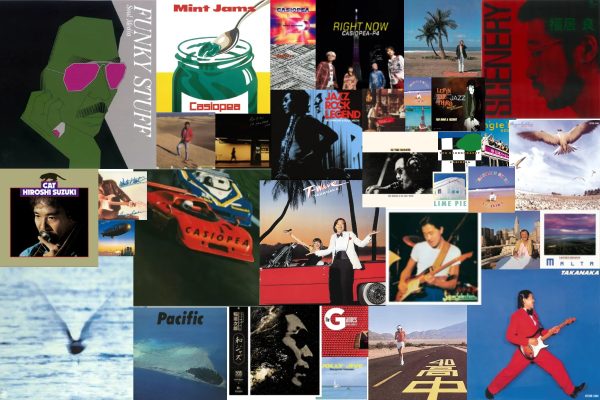How the Great British Baking Show Redefined Culinary Television
As someone whose first exposure to cooking shows was Gordon Ramsay screaming expletives at small children on Master Chef Junior, there was a certain level of hostile competition that I had grown accustomed to as an American culinary show viewer. “Worst Cooks in America,” “Iron Chef America,” “Hell’s Kitchen,” and “Cutthroat Kitchen,” just to name a few, all conform to the idea that the only way to get people to watch someone cook for an hour is to make the opponents compete in ruthless challenges full of mean-spirited sabotage for large sums of money. Imagine my surprise when one day in seventh grade I stumbled upon the very antithesis of my childhood favorites: “The Great British Baking Show.”
For those unfamiliar with the program like I was, “The Great British Baking Show” (which recently started airing its ninth collection on Netflix) is a competition where the 12 best home bakers from all across Britain compete in three main challenges: the signature challenge, the technical challenge, and the showstopper challenge. In the signature, the bakers are given a broad concept to follow, such as 12 decorative mini roll cakes, and they get to display their personally tested creations to the judges. During this challenge, they show little snippets introducing each baker’s occupation, family, hobbies, etc. to show who the contestants are outside of the tent. For the technical, each baker is supplied with the same basket of mystery ingredients covered with a gingham towel and a set of scant directions. This section is designed to test their prior knowledge and skill level. The bakers are judged blindly and ranked based on the accuracy of their bakes. In the showstopper, the bakers must complete a creation that fits a previously decided theme, such as antigravity illusion cakes that represent a precious memory. Once time is up, each baker brings their showstopper up to a table for constructive judgment. After careful consideration by the judges, one baker is politely asked to leave the tent and another is crowned star baker for the week. Then, everyone hugs and many tears are shed as they bid farewell to a new friend and congratulate the accomplished star baker.
Every conceivable aspect of this show is superior to its American counterparts. The current judges, Paul Hollywood and Prue Leith are absolute gems. Paul Hollywood is supposed to be the intimidating and harsh one, but all he does is walk around and menacingly stare at the bakers. His critiques are fair and his counterpart, Prue, creates a calming and supportive atmosphere, which American cooking shows desperately lack. The two comedic announcers Noel Fielding and Matt Lucas introduce the challenges and announce when there are 30 minutes left. Noel and Matt open each episode with a skit relating to the weekly baking theme. Although it’s a competition, these skits exemplify the more whimsical nature of the show. In addition, both Noel and Matt are always willing to calm a contestant’s nerves and supply them with a little joke to make them laugh. The contestants themselves form tight bonds with each other in a way that American cooking shows simply don’t foster. They assist whoever needs their help and congratulate their fellow contestants on positive judgment. When a baker is asked to leave the competition, they always rave about how lovely their competitors are in their brief goodbye interview. This positive environment might be attributed to the fact that there is no hefty cash prize. The winner receives an engraved cake stand, a bouquet of flowers, and eternal glory.
Another lovely aspect of “Bake Off” is the jovial musical accompaniment. There is no intense ticking sound to denote the ending of a round, or spastic violins indicating a blunder like in “Chopped” or “Master Chef.” There is simply a charming medley of violin, cello, and percussion that uplifts the spirit and pacifies the soul. Instead of cutscenes full of hectic camera shots and loud noises, “Bake Off” adds in picturesque shots of whatever breathtaking castle or garden they’re set up near for the season or scenes of animals the camera crew captured on film. The random welcome addition of a tiny squirrel chomping on an acorn never fails to bring a smile to my face. And yet even with all of this calming imagery and music, there is never a dull second. There are definitely still moments of suspense and discourse, but they mostly revolve around a baker’s shortcomings and not smack talk. “The Great British Baking Show” is perpetually enthralling and full of splendor that can only be experienced in its presence. If you decide to give it a try, I promise your time will not be wasted. And if you do find yourself hooked like the over ten million viewers to date, there are 80 hours of content, so enjoy.
Your donation will support the student journalists of Chamblee High School Blue & Gold. Your contribution will allow us to print editions of our work and cover our annual website hosting costs. Currently, we are working to fund a Halloween satire edition.

Sydney Leahy is a senior and editor on the Blue & Gold. The movie that best encapuslates her high school experience is "Panic Room" by David Fincher. In five years, she hopes to have earned the title of reclusive curmudgeon, living on in fables told by cowering neighborhood children. This is her second year on the staff.


